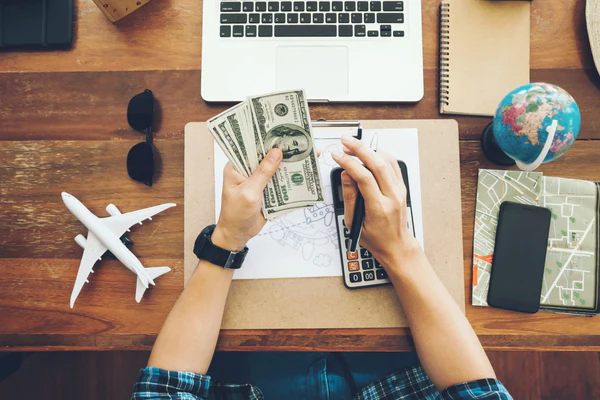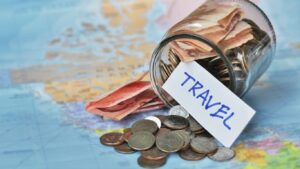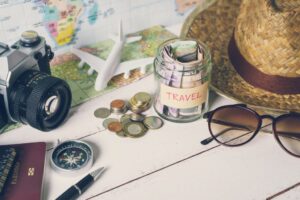Traveling for the first time can be thrilling, but it can also be overwhelming—especially when it comes to managing your finances. First-time travelers often find themselves overspending or having to struggle with their finances. Budgeting for travel is important not only to control expenses but also to ensure that you have a relaxing and enjoyable trip. You can explore new places and try local food without worrying about money if you know how to plan your budget and allocate it wisely. Travel budgeting can be a valuable tool for beginners. It will make your trip more enjoyable and smooth.
Start Budgeting with Realistic Budgeting
A realistic budget is the foundation for any successful trip. It should be based on both your financial situation and your travel goals. Take the time to estimate your total expenses before booking flights or accommodations. This includes everything from transportation and lodging to shopping, food, and sightseeing. Do some research on the average cost of these items at your destination to ensure that your budget is based on real data. You should be honest about your budget and include a cushion for emergencies or unexpected costs. Establishing a spending limit before you leave will help to avoid stress if money runs out mid-trip.
Track your expenses continuously.
Budgeting for travel is all about being aware of your spending. Record all expenses, no matter how small. Use spreadsheets, apps, or notebooks. This keeps you on track and helps to prevent unexpected shortages. When you are swept up in the excitement and adventure of traveling, it’s easy for you to lose track. Regular monitoring will help you keep tabs on your spending. Budgeting apps let you set daily and weekly spending limits, and they send you reminders if you are close to exceeding those limits. You can travel with confidence if you are well-informed and organized about your finances.
Take Advantage of Deals and Discounts
Many first-time travelers miss out on saving money because they don’t know about local promotions or discounts. Students, seniors, or tourists can often get special discounts on restaurants, transportation, and attractions. By booking in advance, you can get lower rates on hotels and flights. Joining travel forums, signing up for travel newsletters, or following travel deal sites can alert you of flash sales and discounted packages. Using public transportation passes and multi-attraction tickets can also reduce costs. By being proactive and resourceful when searching for deals, you can stretch your budget further and experience more.
Be Flexible with Travel Dates and Destinations
Saving money on travel is possible by being flexible. By avoiding peak seasons, major holidays, and weekends, you can save money on flights, accommodation, and other activities. You might find cheaper deals and fewer crowds if you are willing to explore newer or less popular destinations. You can save hundreds of dollars by adjusting your travel dates by just a few weeks. You can also take advantage of specials or discounts at the last minute. By planning with flexibility in mind, new opportunities will be available to you that are within your budget.
Use Affordable Accommodation Options
Budgeting for accommodation is a major part of any travel budget. Hostels, guesthouses, and budget hotels are great for first-time travelers. If you prefer more privacy but don’t want to pay the high price of a hotel, many hostels offer private rooms. Other options, such as vacation rentals, house-sitting, and homestays, can offer comfort and a local flavor for a fraction of the cost. Cooking your own food can save you money if your accommodation has a kitchen. You can find the best prices by comparing and researching on booking platforms.
Limit Impulse Purchases and Souvenirs
First-time travelers, who are looking to bring home gifts and mementos, can find that souvenirs or impulse purchases drain their travel budgets. You can stay in control by setting a budget for souvenirs or restricting purchases to only a few items that are meaningful. Keep in mind that experiences and memories are more valuable than things. Local markets often offer better prices and authentic products than tourist shops. By being mindful of your non-essential spending, you can ensure that your budget is intact for other important expenses such as transport and accommodation.
Conclusion
Smart budgeting for first-time travelers is crucial to make the most out of their travel experience without going overboard. Set realistic budgets and prioritize your spending. Track expenses, look for bargains, and be flexible. This will allow you to explore new destinations with confidence and comfort. Budget-friendly accommodation and local foods will help you stretch your money, while planning for emergencies and limiting impulse buys will protect your financial health. Travel is all about adventure, discovery, and growth. Managing your money well will ensure that these moments enrich rather than stress you out. Your first trip can be memorable and financially responsible with careful planning and spending.
FAQs
1. What should a first-time traveler budget for their trip?
The answer depends on your destination, the length of your stay, and how you travel. Create a budget that suits your financial situation, taking into account accommodation, transportation, and activities.
2. Which tools can assist with budgeting for travel?
Expense tracking software like Trail Wallet or Mint, as well as simple spreadsheets, can be useful. You can monitor your daily expenses and stick to budgets.
3. Is it advisable to book hotels and flights in advance?
Generally, yes. Early bookings often result in lower prices. Last-minute offers can be a good deal if you are flexible.
4. Where can I locate deals and discounts?
Subscribe to travel deal newsletters and use discount websites. Follow social media accounts that focus on travel deals. Look for local tourist passes or cards.
5. Should I use cash or cards when traveling?
Mixing is the best. Use credit or debit cards to pay for large purchases, and carry local currency only for smaller purchases. Check for foreign transaction fees.




